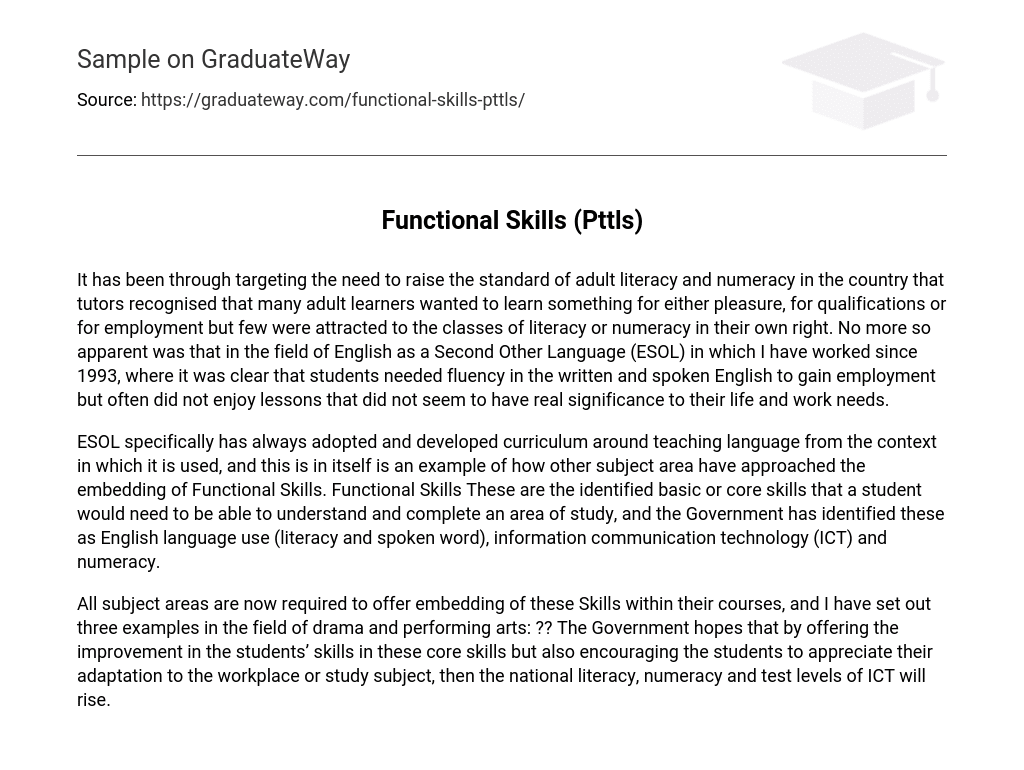It has been through targeting the need to raise the standard of adult literacy and numeracy in the country that tutors recognised that many adult learners wanted to learn something for either pleasure, for qualifications or for employment but few were attracted to the classes of literacy or numeracy in their own right.
No more so apparent was that in the field of English as a Second Other Language (ESOL) in which I have worked since 1993, where it was clear that students needed fluency in the written and spoken English to gain employment but often did not enjoy lessons that did not seem to have real significance to their life and work needs.
ESOL specifically has always adopted and developed curriculum around teaching language from the context in which it is used, and this is in itself is an example of how other subject area have approached the embedding of Functional Skills. Functional Skills These are the identified basic or core skills that a student would need to be able to understand and complete an area of study, and the Government has identified these as English language use (literacy and spoken word), information communication technology (ICT) and numeracy.
All subject areas are now required to offer embedding of these Skills within their courses, and I have set out three examples in the field of drama and performing arts: The Government hopes that by offering the improvement in the students’ skills in these core skills but also encouraging the students to appreciate their adaptation to the workplace or study subject, then the national literacy, numeracy and test levels of ICT will rise.





